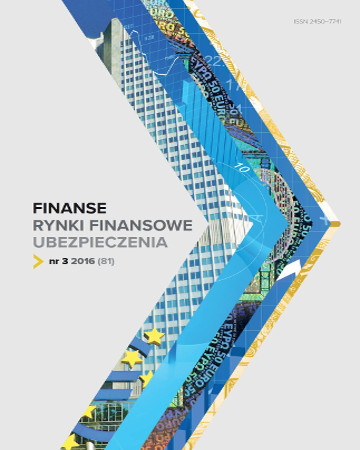
ISSN: 2450-7741
eISSN: 2300-4460
OAI
DOI: 10.18276/frfu.2017.88/1-43


Issue archive /
4/2017
Renesans koncepcji budżetowania od zera
(THE RENAISSANCE OF ZERO-BASE BUDGETING)
| Authors: |
Marcin
Kowalewski
Uniwersytet Ekonomiczny we Wrocławiu |
| Keywords: | zero-base budgeting enterprise |
| Data publikacji całości: | 2017 |
| Page range: | 9 (447-455) |
Abstract
Purpose – The main aim of this paper is the critical analysis of new approach to zero-based budgeting. This concept of budgeting, over 40 years after its creation, is enjoying a renaissance. There are discussed the dissatisfaction of traditional budgeting, the brief history of zero-base budgeting, the zero-base budgeting process and new approach to this concept.
Design/methodology/approach – Literature review, deduction.
Findings – Zero-base budgeting is an interesting alternative to traditional budgeting. Zero-base budgeting means to plan company activity “from scratch” – from zero. It is not only a powerful tool for cost management and continuous improvement, but unique mind-set shift that upends managers default assumptions.
Originality/value – Zero-base budgeting is an another concept that emphasizes the changes in operational planning of enterprise activity nowadays.
Download file
Article file
Bibliography
| 1. | Anthony, R.N., Hawkins, D.F., Merchant, K.A. (2011). Accounting Text and Cases. Thirteenth Edition. McGraw-Hill International Edition. |
| 2. | Bacon, J., Rogers, C., Chahal, M. (2016). Trends for 2017: Zero-based Budgeting & Influencers 2.0. Pobrano z: https://www.marketingweek.com/2016/12/08/trends-2017-zero-based-budgeting-influencers-tv (17.03.2017). |
| 3. | Fitzpartick, M., Hawke, K. (2015). The Return of Zero-base Budgeting. McKinsey & Company. Pobrano z: http:// www.mckinsey.com/business-functions/strategy-and-corporate-finance/our-insights/the-return-of-zero-base-budgeting (7.03.2017). |
| 4. | Hansen, S.C. (2011), A Theoretical Analysis of the Impact of Adopting Rolling Budgets, Activity-Based Budgeting and Beyond Budgeting. European Accounting Review, 20 (2), 289–319. |
| 5. | Heinrich, J., Garton, E., Martin, B. (2016). Betting on Zero-Based Budgeting’s Trifecta. Bain & Company. |
| 6. | Kowalewski, M. (2013), Ewolucja czy rewolucja we współczesnym budżetowaniu. Koncepcja beyond budgeting a tradycyjne budżetowanie. W: A. Karmańska (red.), Nauka o rachunkowości na progu gospodarki opartej na wiedzy. Warszawa: Oficyna Wydawnicza SGH. |
| 7. | Kowalewski, M. (2014). Koncepcja better budgeting jako alternatywa wobec tradycyjnego budżetowania. Finanse, Rynki Finansowe, Ubezpieczenia, 66, 43–51. |
| 8. | Mahler, D. (2016). Zero-Based Budgeting Is Not a Wonder Diet for Companies. Harvard Business Review, June. |
| 9. | McNally, S.J. (2016). Zero-Based Budgeting: Building for Success Again, and Again, and Again. |
| 10. | Neely, A., Bourne, M., Adams, Ch. (2003). Better Budgeting or Beyond Budgeting? Measuring Business Excellence, 7 (3), 22–28. |
| 11. | Nowak, E. (2010). Podstawy budżetowania w przedsiębiorstwie. W: E. Nowak (red.), Budżetowanie w przedsiębiorstwie. Warszawa: Wolters Kluwer Polska. |
| 12. | Pyhrr, P. (1973). Zero-Base Budgeting A Practical Management Tool for Evaluating Expenses. |
| 13. | John Wiley & Sons. Sierpińska, M., Niedbała, B. (2003). Controlling operacyjny w przedsiębiorstwie. Warszawa: Wydawnictwo Naukowe PWN. |
| 14. | Szychta, A. (2008). Etapy ewolucji i kierunki rozwoju metod rachunkowości zarządczej. Łódź: Wydawnictwo Uniwersytetu Łódzkiego. |
| 15. | Szychta, A. (1999). Zasady i metody budżetowania. W: A.A. Jaruga, W. A. Nowak, A. Szychta, Rachunkowość zarządcza. Koncepcje i zastosowania. Łódź: Wydawnictwo Absolwent. |